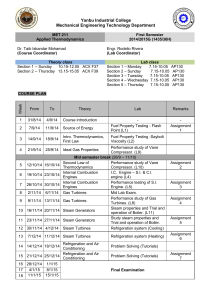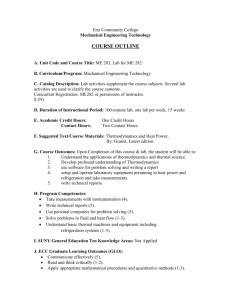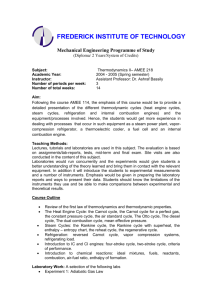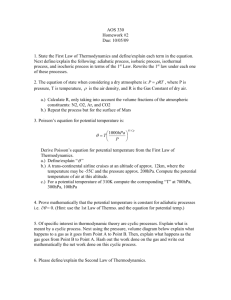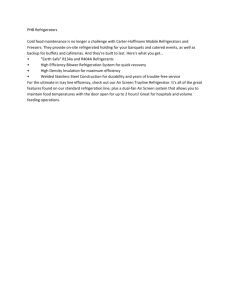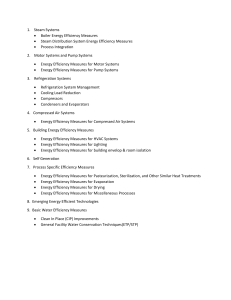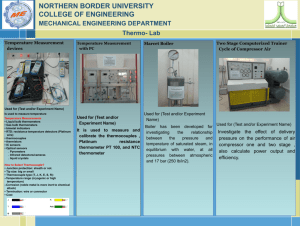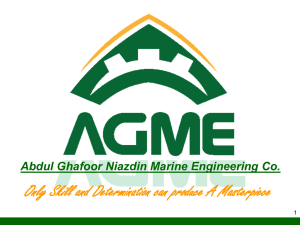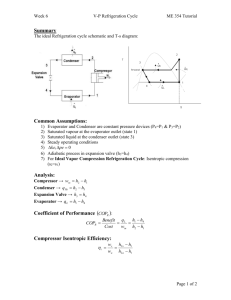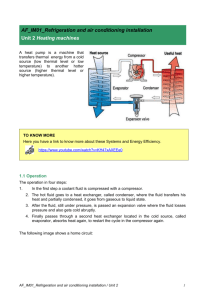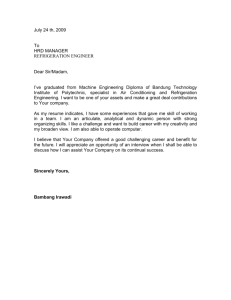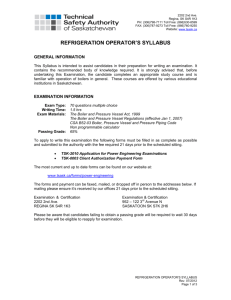Thermo Lab Feb 2011 - Faculty of Engineering and Technology
advertisement
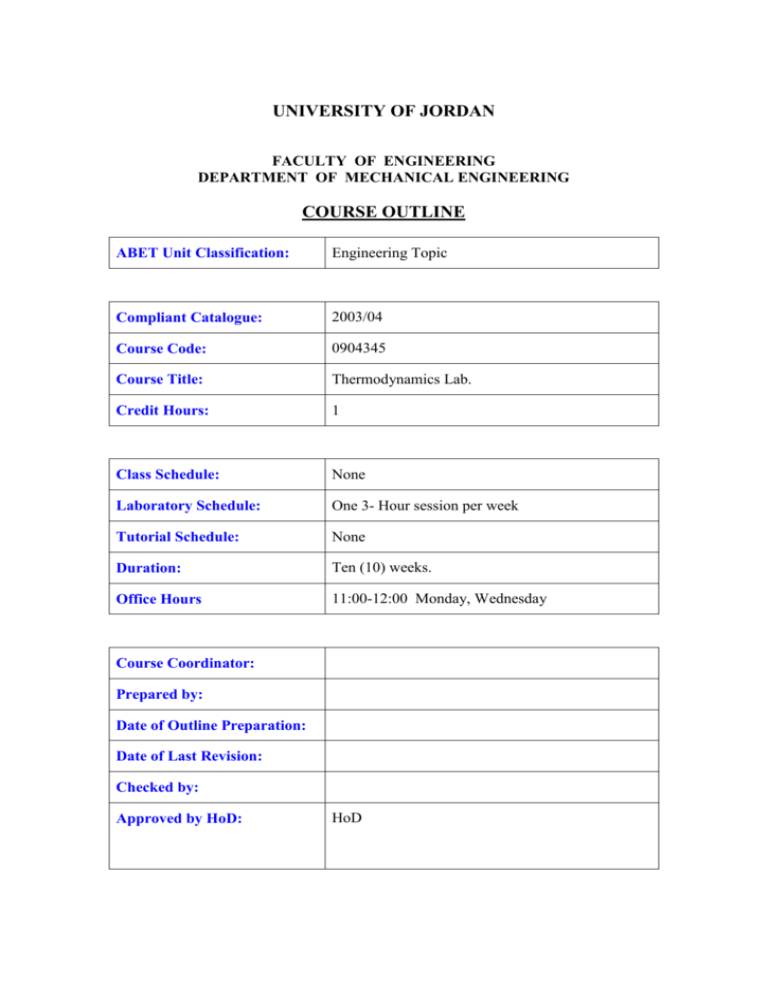
UNIVERSITY OF JORDAN FACULTY OF ENGINEERING DEPARTMENT OF MECHANICAL ENGINEERING COURSE OUTLINE ABET Unit Classification: Engineering Topic Compliant Catalogue: 2003/04 Course Code: 0904345 Course Title: Thermodynamics Lab. Credit Hours: 1 Class Schedule: None Laboratory Schedule: One 3- Hour session per week Tutorial Schedule: None Duration: Ten (10) weeks. Office Hours 11:00-12:00 Monday, Wednesday Course Coordinator: Prepared by: Date of Outline Preparation: Date of Last Revision: Checked by: Approved by HoD: HoD University of Jordan Mechanical Engineering Department COURSE OUTLINE I. Course Description Thermodynamics Lab 0904345 [1] Experimental methods in the following topics: Mechanical equivalent of heat; The adiabatic exponent; Marcet boiler; Bomb calorimeter; Flow through nozzle; Refrigeration system; Air conditioning system; Heat pump and air cooler; Single stage air compressor; Thermic unit (steam turbine power plant). II. Required Background or Experience Prerequisites by course: 0904341, Thermodynamics-1 (Prerequisite) 0904342, Thermodynamics-2 (Co-requisite) Prerequisites by topic: 1. Basic Physical concepts such as energy, work and heat. 2. Basic Thermodynamic processes and cycles, such as: compression, expansion, steam cycle, Air conditioning and refrigeration cycles 2. Basic mathematics and calculus. Post requisites: None III. Expected Outcomes Students will be expected to develop the following skills/understanding upon the successful completion of 0904345. They will be able to: Measure work and heat transfer in a friction process and compare it with theory Measure the adiabatic exponent ( the ratio of specific heats at constant pressure and constant volume) of air and compare it with theory. Measure the heating value of a solid or liquid fuel and compare it with theory. Experimentally find a part of the saturated liquid curve for water. Experimentally determine the thermal performance of an air cooler/ heat pump including the C.O.P. Experimentally determine the performance of a reciprocating air compressor, including its efficiency. Experimentally determine the performance of an air conditioning unit, including the determination of its C.O.P., cooling capacity and heat rejection rate. Experimentally determine the performance of a refrigeration unit, including the determination of its C.O.P., refrigeration capacity and heat rejection rate. Identify the internal components of a steam power plant, including the internal parts of the boiler. Determine the performance of a thermal power plant, including its efficiency, power, heat rejection rate and heat rate. IV. Textbook(s) and Readings 1. Lab manual 2. Thermodynamics textbooks, such as: Fundamentals of Thermodynamics; by Sonntag, Borgnakke and Van Wylen, 6th. Edition,(2003). V. Minimum Student Materials Lab manual, engineering calculator and PC. VI. Minimum College Facilities Laboratory, white board and PC. VII. Course Outline The following topics will be covered in this course: 1. Mechanical equivalent of heat. 2. The adiabatic exponent; 3. Marcet boiler; 4. Bomb calorimeter; 5. Flow through nozzle; 6. Refrigeration system; 7. Air conditioning system; 8. Heat pump and air cooler; 9. Single stage air compressor; 10. Thermic unit (steam turbine power plant). Weeks 1 1 1 1 1 1 1 1 1 1 VIII. Instructional Methods 1. Live demonstration on the device. 2. Oral instruction by lab staff. IX. Evaluation of Outcomes Evaluation will be performed based on the following: 1. Lab attendance and participation: 10 % 2. Lab reports: Two full reports: 18% Eight short reports: 32% 3. Final Exam : 40% The final is composed of two parts: Closed notes( True-False); 10% and Open notes; 30%. X. Professional Component Contribution The student gains the ability to have a hands-on experience in the operation, measurement and analysis of a wide variety of thermo-dynamic related devices in mechanical engineering.
